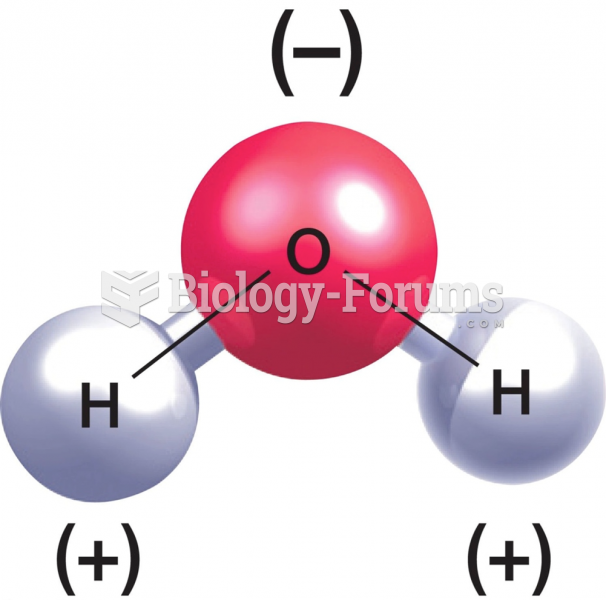|
|
|
According to research, pregnant women tend to eat more if carrying a baby boy. Male fetuses may secrete a chemical that stimulates their mothers to step up her energy intake.
Walt Disney helped combat malaria by making an animated film in 1943 called The Winged Scourge. This short film starred the seven dwarfs and taught children that mosquitos transmit malaria, which is a very bad disease. It advocated the killing of mosquitos to stop the disease.
Persons who overdose with cardiac glycosides have a better chance of overall survival if they can survive the first 24 hours after the overdose.
Patients who have been on total parenteral nutrition for more than a few days may need to have foods gradually reintroduced to give the digestive tract time to start working again.
When blood is exposed to air, it clots. Heparin allows the blood to come in direct contact with air without clotting.
 Young boy with characteristic nasal crease from the repeated action of the “nasal salute” caused ...
Young boy with characteristic nasal crease from the repeated action of the “nasal salute” caused ...
 The Taung Child, the first of the australopithecines to be discovered, is the type specimen for Aust
The Taung Child, the first of the australopithecines to be discovered, is the type specimen for Aust
 Three standard sizes of cuffs: a small cuff for a child or frail adult; a normal-sized adult cuff; ...
Three standard sizes of cuffs: a small cuff for a child or frail adult; a normal-sized adult cuff; ...




